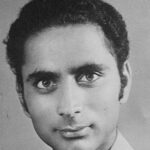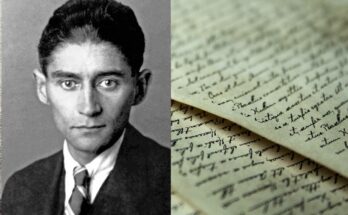In the poem, “Cause and Effect,” Charles Bukowski alludes to the phenomenon of the “Success Paradox,” which is a common challenge faced by individuals who have achieved a high level of success, but still, feel unfulfilled or unsatisfied with their lives.
This paradox can arise when individuals realize that the goals they have been striving towards – say wealth, power, or recognition – do not actually provide the sense of purpose or meaning that they had anticipated.
As Linkin Park so aptly put it in their hit song “In the End,”
“I Tried So Hard And Got So Far
But In The End, It Doesn’t Even Matter”
This sentiment speaks to the idea that even when we achieve our goals and accomplish great things, we may still feel a sense of emptiness or futility.
Furthermore, individuals who experience the success paradox may struggle with feelings of imposter syndrome, which is the feeling of not deserving one’s own success or accomplishments.
This can contribute to a sense of worthlessness or lack of purpose, as individuals may feel like they have achieved success for no real reason, or that their achievements are not actually meaningful or valuable.
When all of these factors come together, it can create a perfect storm of despair and hopelessness, leading individuals to contemplate suicide as a way out.
You might also like: A Quest That Began with The Alchemist
Bukowski’s poem “Cause and Effect” highlights the devastating impact that suicide can have on those left behind, while also unraveling the complex emotional landscape that can lead someone to take their own life.
Cause And Effect
The best often die by their own hand
just to get away,
and those left behind
can never quite understand
why anybody
would ever want to
get away
from
them.
By exploring the interplay between success, mental health, and suicide in Bukowski’s “Cause and Effect,” we can gain a more nuanced comprehension of the complex emotional dynamics that can drive individuals to take the extreme step of ending their own lives
For more on Bukowski’s thoughts on the emptiness of modern life, check out the blog post “Charles Bukowski on Emptiness in Life,” or read his thoughts on “Writing as a Beacon of Hope” to explore the power of creativity and self-expression as a means of finding purpose and fulfillment.
If you are into books, do Subscribe to Amazon Audible and listen to unlimited audiobooks and podcasts while doing your daily chores. It’s FREE for the 1st month.
Must-Read: Slay the 21st century with these 15 powerful life lessons from Charles Bukowski
Amazon Links To Buy Charles Bukowski’s Books:―
- You Get So Alone at Times | Amazon In | Amazon US
- Love Is A Dog From Hell | Amazon In | Amazon US
- Post Office | Amazon In | Amazon US
- Factotum | Amazon In | Amazon US
- The Last Night of The Earth Poems | Amazon In | Amazon US
- Ham On Rye | Amazon In | Amazon US
The Best Books: Recommended Reading Lists
1. Best Books That Teach the Art of Living a HAPPIER LIFE
2. Best Books on STOCK MARKET & INVESTING
3. Best Books To Help You Find HOPE During Your Darkest of Times
4. Best Books on Learning & Mastering SONGWRITING
5. Must-Read Books on Punjab’s History and Culture
6. Best Books That Talk about SOLOGAMY
7. Books Chris McCandless Took On His Journey ― INTO THE WILD
8. 7 Alan Watts Books That Talk About Human Existence
9. From Ph.D. To Industry: 4 Best Books To Aid Your Transition
10. Inspiring Ambitions: Autobiographies of Cricketers Who Made It Big
11. Best Books Debating the Existence of Free Will
12. Books To Understand Blockchain Technology
That’s all we have for today.
Thanks a lot for tuning in to HappinessDhaba. Do let me know your views on this in the comment section.
Signing off with my favorite words
Zindagi Zindabad!
Author Profile

Recent Posts
 The Punjabi LiteratureJuly 14, 2025Paash on the Death of Dreams ― Sab Ton Khatarnak
The Punjabi LiteratureJuly 14, 2025Paash on the Death of Dreams ― Sab Ton Khatarnak Blog PostsApril 6, 2025Rebuilding Identity After The Self Falls Apart | by Jasmeet
Blog PostsApril 6, 2025Rebuilding Identity After The Self Falls Apart | by Jasmeet Book Summaries & LessonsFebruary 6, 2025BURN IT ALL: Kafka’s Legacy and the Friendship That Saved It
Book Summaries & LessonsFebruary 6, 2025BURN IT ALL: Kafka’s Legacy and the Friendship That Saved It Life Through SongsJanuary 20, 20259 Best Punjabi Heer Ranjha Songs ― The Modern Playlist
Life Through SongsJanuary 20, 20259 Best Punjabi Heer Ranjha Songs ― The Modern Playlist








